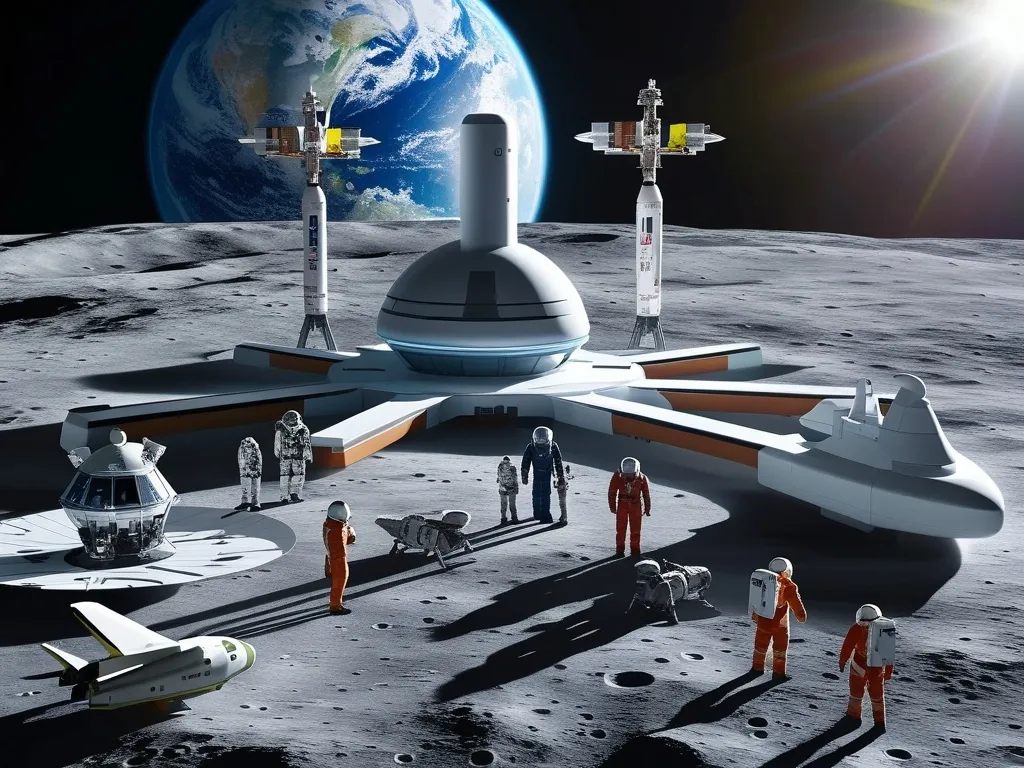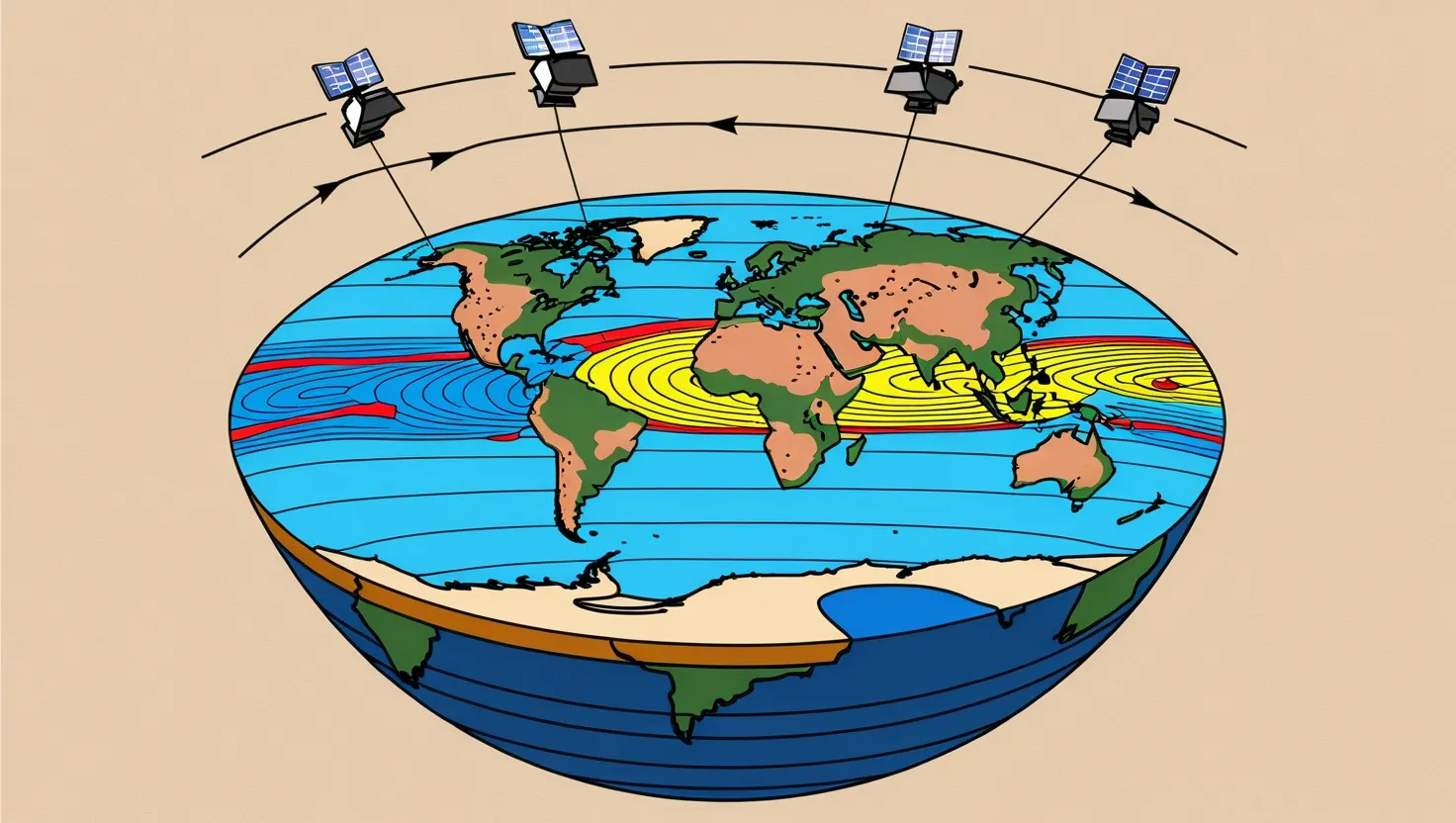As we gaze up at the night sky, it’s hard not to feel a sense of awe and wonder at the vast expanse of space that lies before us. However, the quest for space exploration is no longer just a scientific endeavor; it has evolved into a complex web of geopolitics and economic strategies that are reshaping our world.
The New Frontier of Global Politics
Space exploration is no longer the exclusive domain of a few superpowers. Today, numerous countries are joining the fray, each with their own set of goals and motivations. This new space race is not just about reaching the stars; it’s about extending the geography of Earth into the cosmos. Nations are taking their conflicts, alliances, and rivalries into space, just as they have on Earth.
The costs of space travel have significantly decreased, thanks in part to innovations like reusable rockets pioneered by companies such as SpaceX. This reduction in cost has made it feasible for more countries and private enterprises to enter the space arena. For instance, the miniaturization of satellites has allowed for the deployment of multiple satellites at once, further democratizing access to space.
Geopolitical Tensions and Alliances
The space race is not without its tensions. The rivalry between the USA and China is a prime example. Both nations are vying for dominance in space, with each side pursuing ambitious projects like the return to the Moon and the establishment of lunar bases. These bases are not just scientific outposts but also strategic locations that could serve as launch pads for further exploration, such as missions to Mars, and as sites for mining rare and valuable resources like helium-3, which is believed to have the potential to solve humanity’s energy needs for thousands of years.
The military aspect of space exploration is also becoming increasingly significant. Satellites are crucial for both commerce and warfare, and countries are now focusing on how to defend these assets and potentially attack those of their adversaries. The recent conflict in Ukraine has highlighted the importance of space in modern warfare, as satellite communications and surveillance played critical roles.
Economic Opportunities and Challenges
The economic benefits of space exploration are multifaceted. Space is central to our everyday lives, from communication and navigation to weather forecasting and military strategy. The growth of the space economy is expected to be exponential, with global investment in space activities increasing at a rapid rate. For example, between 2009 and 2013, global investment in space-based activities grew at an annual rate of 6%, and this trend is expected to continue.
Private companies are driving much of this growth. Firms like SpaceX, Blue Origin, and Planet Labs are not only reducing the costs of space travel but also creating new industries such as space tourism, in-space manufacturing, and bioproduction. These innovations are not just about exploring space; they are about creating new economic opportunities that can feed back into Earth’s economy.
Public-Private Partnerships
The collaboration between public and private sectors is crucial in this new era of space exploration. Public-private research and development partnerships (PPRDPs) are becoming more common, allowing for the pooling of resources and expertise. NASA, for instance, has been instrumental in fostering these partnerships, providing incentives for private companies to engage in research and development. This collaboration has led to significant advancements in areas such as space transportation, in-space manufacturing, and satellite services.
Global Governance and Regulation
As more countries and companies enter the space arena, the need for robust global governance and regulation becomes more pressing. Space is currently an open-access resource without strict global regulations, which can lead to a “tragedy of the commons” scenario where overexploitation and competition undermine the long-term sustainability of space activities.
There is a growing recognition that laws and international agreements are needed to encourage cooperation rather than conflict. However, given the geopolitical tensions, it is challenging to achieve consensus. The US government, for example, is under pressure to re-examine its policies to accommodate the commercial development of space goods and services, while also ensuring national security interests are protected.
Impact on Earthly Economies
The impact of space exploration on earthly economies is profound. It supports highly skilled jobs, fuels technological advancements, and creates business opportunities that contribute to economic growth. For instance, studying how to grow food in space can provide insights into growing food in extreme conditions on Earth, which is crucial in the face of climate change.
Medical research conducted in space also has direct benefits for Earth. Studies on the International Space Station have led to better understanding of the human body, which in turn has improved medical treatments and saved lives. Moreover, the technological innovations driven by space exploration have practical applications on Earth, from improving weather forecasting to enhancing telecommunications.
Personal and Societal Inspiration
Space exploration is not just about economic and political gains; it also has a profound impact on society and individual inspiration. The dream of reaching the stars motivates children to pursue careers in science, engineering, and medicine. This inspiration is crucial for driving innovation and solving the complex problems we face on Earth.
The Cosmic Perspective
When we look at the cosmos, we gain a unique perspective on our own planet. Studying other worlds helps us understand the fragility and uniqueness of Earth. For example, observing Venus’s runaway greenhouse effect underscores the importance of protecting our planet’s habitability. This cosmic perspective encourages us to invest in efforts to preserve Earth’s environment.
The Future of Space Exploration
As we move forward, the space sector will continue to evolve rapidly. More countries will join the space race, and private companies will play an increasingly significant role. The challenge will be to balance competition with cooperation, ensuring that the benefits of space exploration are shared globally.
In this new frontier, the sky is indeed not the limit but the beginning of a new power dynamic and economic opportunity. As we navigate this complex landscape, it’s clear that the quest for space is not just about reaching the stars; it’s about shaping the future of our world.
In conclusion, the journey into space is a multifaceted endeavor that intertwines geopolitics, economics, and human inspiration. As we venture further into the cosmos, we must be mindful of the challenges and opportunities that lie ahead, ensuring that our pursuit of the stars benefits all of humanity. The future of space exploration is not just about what we achieve in the cosmos; it’s about how those achievements shape our world here on Earth.






